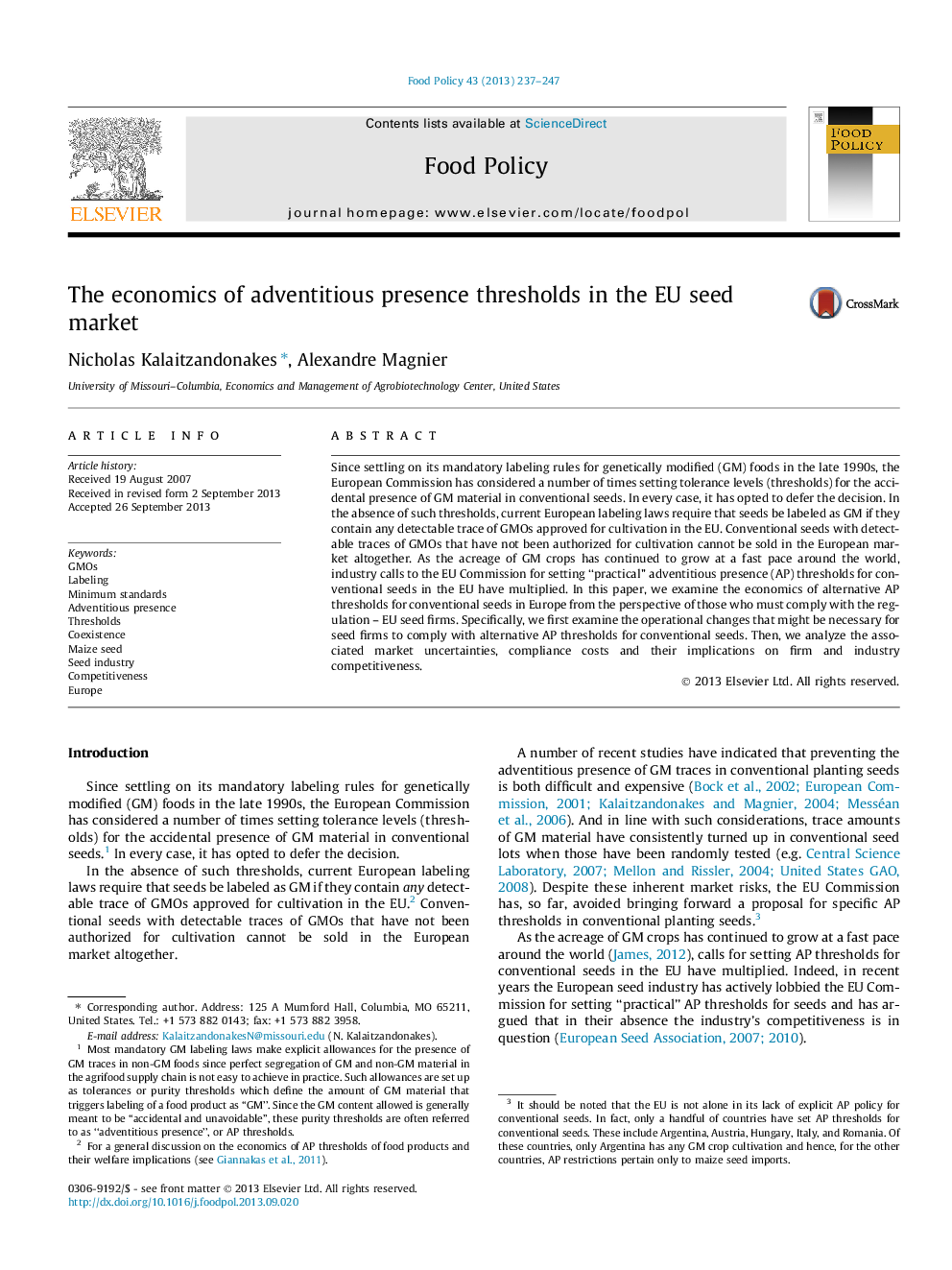| Article ID | Journal | Published Year | Pages | File Type |
|---|---|---|---|---|
| 5070605 | Food Policy | 2013 | 11 Pages |
Abstract
Since settling on its mandatory labeling rules for genetically modified (GM) foods in the late 1990s, the European Commission has considered a number of times setting tolerance levels (thresholds) for the accidental presence of GM material in conventional seeds. In every case, it has opted to defer the decision. In the absence of such thresholds, current European labeling laws require that seeds be labeled as GM if they contain any detectable trace of GMOs approved for cultivation in the EU. Conventional seeds with detectable traces of GMOs that have not been authorized for cultivation cannot be sold in the European market altogether. As the acreage of GM crops has continued to grow at a fast pace around the world, industry calls to the EU Commission for setting “practical” adventitious presence (AP) thresholds for conventional seeds in the EU have multiplied. In this paper, we examine the economics of alternative AP thresholds for conventional seeds in Europe from the perspective of those who must comply with the regulation - EU seed firms. Specifically, we first examine the operational changes that might be necessary for seed firms to comply with alternative AP thresholds for conventional seeds. Then, we analyze the associated market uncertainties, compliance costs and their implications on firm and industry competitiveness.
Keywords
Related Topics
Life Sciences
Agricultural and Biological Sciences
Food Science
Authors
Nicholas Kalaitzandonakes, Alexandre Magnier,
